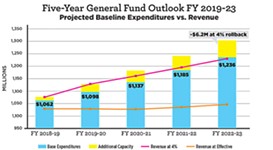Point Austin: The Capitol Circus Decamps
Did we learn anything more than the meaning of "chub"?
By Michael King, Fri., June 5, 2009

Notably lost in the turpitude were not just the Texas Department of Transportation reformation, the local gas tax option (remember when the Texas highway lobby was invincible?), and the former bosom friendship of Senate Republicans John Carona and Glenn Hegar. The most notable casualty was the potential expansion of health insurance to another 80,000 Texas children, who will go without health care – except, of course, for that stopgap directly underwritten by you at a local emergency room – because Gov. Rick Perry is running for re-election. Similarly, the $555 million in federal stimulus funds intended for unemployment insurance foundered on national GOP anti-Obama politics – despite the fact that the glaring secret of the "balanced" state budget Perry celebrated Tuesday is that it was balanced only with the help of more than $12 billion in federal stimulus money.
That a few thousand more Texans will find it that much harder to get by in hard times, that Texas businesses will get the tax hike as soon as the unemployment insurance fund is exhausted, and that our cities (in their own bleeding budgets) will pay the price deferred by this headline-grabbing maneuver – all are just part of the cost of a politics weighed down with more symbolic rhetoric than practical action.
At What Cost?
Such is the sort of glum calculation that comes around every two years. Was the fight over voter ID worth it this time? The principle – that the right to vote shouldn't be undermined by phony campaigns implicitly aimed at "illegal aliens" who aren't queuing up to vote in any case – is certainly worth defending, although it's arguable that the Democrats might have found tactically more satisfying ways of carrying the fight. Certainly there was buzz within the Dem caucus itself that talking local bills to death for several days would be a hard political sell and that sacrificing other needs – most prominently, the Children's Health Insurance Program expansion – was too high a price for principle.
Unfortunately, that argument neglects the fact that despite recent Democratic gains, the 81st was still very much a Republican Legislature, run from the Texas center-right, and the usual cabal of liberal Dems were fighting back pretty much with the only defensive weapons available – delay and distraction. There was a tantalizing moment when a Dem compromise proposal on voter ID might have won an expansion of voter registration and related voter rights blocked by the GOP for many years, but that went down undebated when it became clear that Republican hard-liners preferred no voter ID bill to one built on progressive compromise. There is still a rumor flitting about that should Perry eventually decide to call a special session to mend the bureaucratic cracks left by this one, he'll add voter ID to the call list – just in time for the Republican primary.
One senses that we'll enter the 2010 campaign season with a 2009 hangover and the curious feeling that nothing much ever changes in Texas politics: Big corporate powers and small-town real estate interests rule, racial polarization is the persistent rhetorical subtext, a handful of progressives fight rear-guard defensive actions, and ordinary citizens are reduced to the level of a reluctant (and shelter-seeking) audience.
Shuffling the Deck
Beyond the Capitol, we have a little more to say and do about municipal matters, although the combination of the national economic recession and the state's neglect of local needs gives Texas cities precious little maneuvering room. The current city administration is attempting a better job of involving citizens directly in setting the budget priorities for next fiscal year (heck, last year they even invited the City Council), so we'll soon get a chance to weigh in about how to stretch the projected available funding.
In its call for upcoming budget "Town Halls," the city projects a "$30 million" deficit. (That estimate at least implies a tax rate adjustment, since without it the gap is closer to $43 million – we'll see, later this summer.) In the meantime, we can attend the forums and use play money to balance the needs of public safety, infrastructure, parks, libraries, social services – that's pretty much as far as it will go.
According to the city's call, "the City Manager has asked most general fund departments throughout the City to reduce their budgets by 7 percent. Public Safety departments have been asked to present reductions equivalent to 3.5 percent of their total budgets." Now we get to see if we can figure out how that bloodletting actually works out in practice.
Here's the schedule, with all meetings running from 6:30 to 8:30pm:
Wednesday, June 10: Northwest Recreation Center, 2913 Northland Dr.
Monday, June 15: Gus Garcia Recreation Center, 1201 E. Rundberg
Tuesday, June 16: Toney Burger Activity Center, 3200 Jones Rd.
It's your chance to play legislator (or rather, department head), at least as well as the professionals. While it won't exactly be fun – although not nearly as bad trying to budget the real money – it should be a useful exercise in the hard knowledge of making a community. Maybe I'll see you there.
Got something to say on the subject? Send a letter to the editor.










